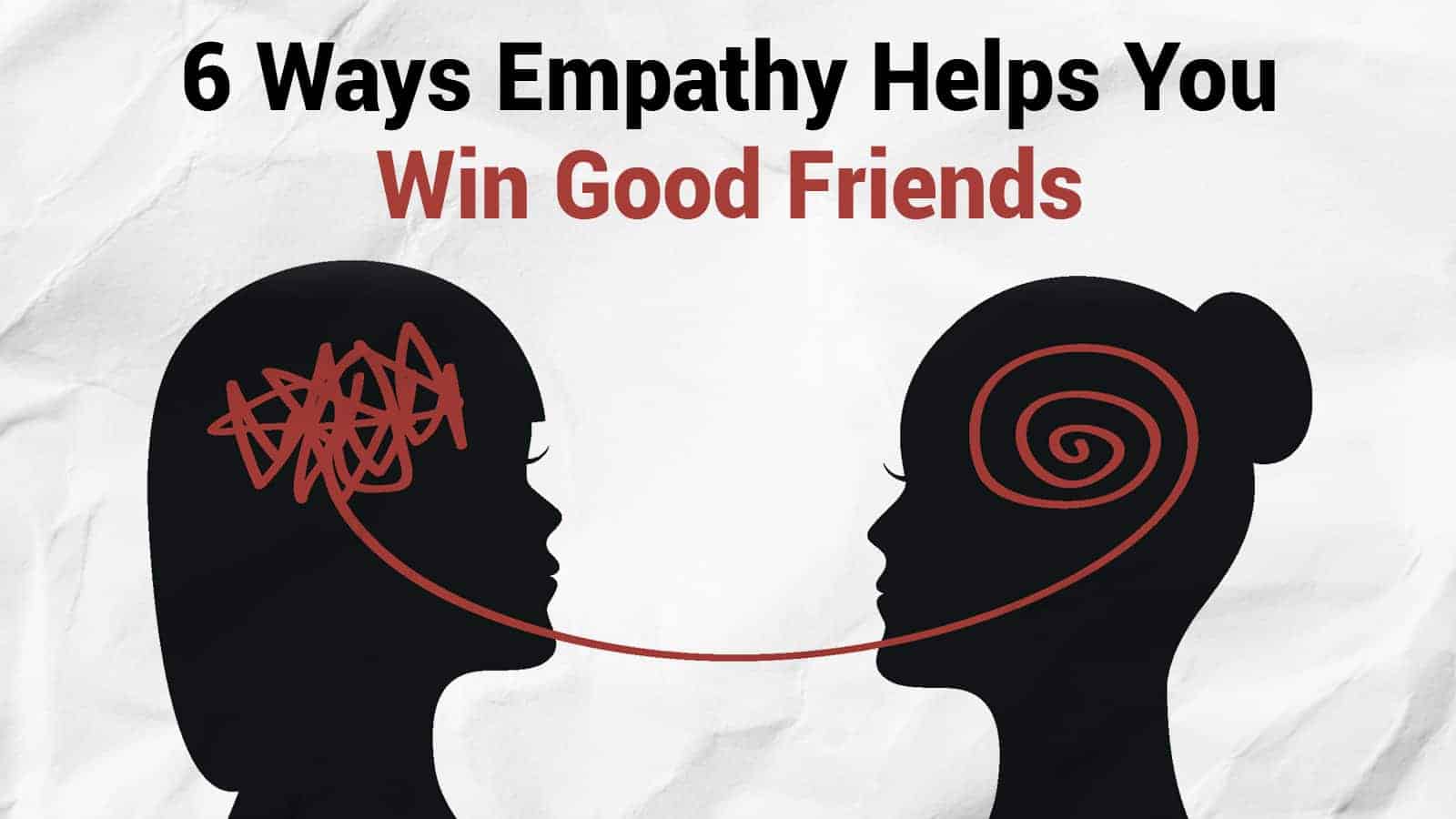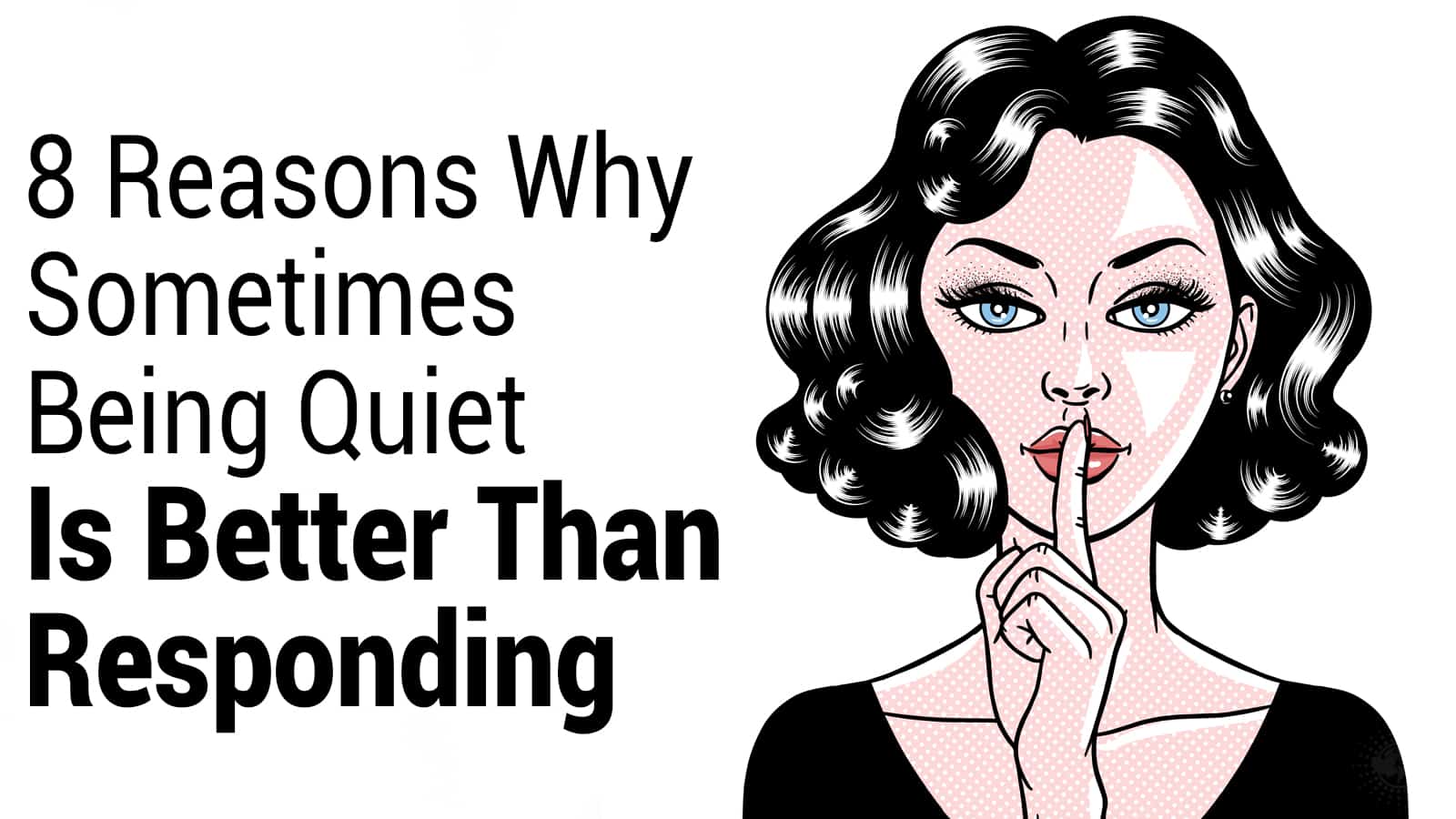Many people want to have a circle of good friends, even if it’s just a small one. Social support is, after all, an important part of human life, and it’s natural for us to want to form communities with others.
However, this isn’t an easy task for everyone! The world is full of different kinds of people with unique behaviors, opinions, and desires that finding, making, and keeping good friends can be difficult.
The good news is that your ability to gain positive friends often stems from you and your own traits. Empathy, which is the ability to put yourself in other people’s shoes and understand their struggles, can help you in that endeavor. Here are six ways empathy helps you win good friends.
1. Empathy Helps Your Communication Skills
Just how are you supposed to connect to others? For many people, empathy is the key. And it’s easy to see why! With the help of empathy, you’ll likely find yourself:
- Visualizing and internalizing how the other party must be feeling
- Considering the situation from their point of view
- Reconsidering your own perspective of things and how it may influence others
- Avoiding misunderstandings, as you can better interpret what someone else is trying to get across
- Adapting your own thoughts and explanations so that you can resonate better with the other person
And that’s not all! Empathy isn’t limited to just thoughts and words. It also helps you better pick up on subtler nonverbal cues as well.
 For example:
For example:
- You’ll pay closer attention to intonation and body language for further context
- You take into account the history and experiences of the person and how it may explain their current situation and behavior
- You’ll recognize the context they’re in is an important consideration you have to keep in mind as well
As a result, you’ll find yourself better communicating with the other party and enjoy positive conversations!
2. It Is Key To Human Community and Making Good Friends
Pick up the closest book, or watch a movie. You may have noticed that some of the key things these stories center around are the protagonist’s relationship with others or its lack. And there’s a good reason for that!
As humans, we are genetically hardwired to crave close, positive, and meaningful connections with others – which is why many of us have at least some capacity for empathy! According to studies, this is done by the brain releasing oxytocin to motivate us to group up with others.
Some of the reasons for this genetic predisposition is:
- Help protect ourselves from outside threats
- To better understand and relate to others in our social circle
- Encourages us to trust and work closely with each other
- Better integration ourselves with the norms and cultural differences of a group
This all then allows us to form beneficial bonds that can help assist each other. But how does empathy factor into this equation? It actually helps us by:
- Allowing us to feel compassion for others, strengthening our ability to connect with them emotionally
- Encouraging us to look out for those around us and closest to us
- It motivates us to care and show compassion for those in our social group
- It pushes us to create positive bonds and relationships with everyone
3. It Increases Cultural Competence
The internet may have made our vast world smaller, but that doesn’t mean we get to see all of it. We may find ourselves easily caught up in groups and communities that share the same mindset and cultural experiences – which isn’t always great!
Figuring out the reason behind why it’s so important to have friends from various cultures isn’t that hard to figure out. For starters, it:
- It helps expose us to ideas and concepts we have never heard of before
- Broadens our views and horizons about the world around us
- Introduces us to experiences we may otherwise have never experienced second hand
- It prompts us to think about how we view the world and why we view it the way we do
- Encourages us to take other perspectives and needs into account
- It teaches us how to interact and listen to the viewpoints of others who are coming from different backgrounds and experiences
As you can imagine, these reasons are all crucial factors to encouraging our social and emotional growth as a person – and they all hinge on you learning how to grow and practice your empathetic skills. These skills can then be applied to all sorts of cultural contexts and situations!
For example:
- This study talks about how important it is for clinicians to have empathy and cultural context to better communicate with their adolescent patients and gain their trust.
- Another study showed how empathy and understanding allowed white people to reconsider and change their interracial interactions with black men for the better.
- You learn how to work alongside people from different backgrounds and cultures.
- It’s easier to focus on positive thinking in the context of dealing with a social group that’s foreign to you.
And these are all positives you otherwise wouldn’t get if it weren’t for empathy!
4. It Allows You To Forge Close Relationships
Just about any relationship expert will tell you that all relationships, be they platonic, romantic, or familial, are highly dependent on open and direct communication between the parties involved. But even within that, there’s another special ingredient that’s necessary – empathy.
But how can empathy help with that? Here are a few ways that empathy can help smooth over the rough patches you may be dealing with in your bonds with your loved ones. Or even with your coworkers and superiors!
- You truly take the time to listen and pay attention to their struggles and worries.
- Taking the time to consider how the situation may be like from their point of view and what the context there might be that’s crucial to their understanding of the situation
- You care about the other person’s needs and well-being and consider it an important priority.
As a result, this all then allows you to:
- Achieve mutual understanding and respect between you and your loved ones
- Understand and see them for who they actually are – not who you think they are
- Encourages you to consider a situation from their point-of-view, with their history and experiences and understanding in mind, so you can better understand how they’re affected
- It helps you to negotiate and take into account the wants and needs of your loved ones
5. It Helps To Improve The World
These days, it feels like the world is just too vast for us to really enact any true sense of change. How can you, one single person, do anything to change how cold and cruel the world can be? It makes positive thinking a tough challenge as a result.
Surprisingly, there’s actually a lot you can do – but you have to think of it as changing the world, one step at a time. You gotta remember, you don’t live in a vacuum. Even if it doesn’t feel like it, your actions have very tangible consequences!
Here’s an example scenario of how your impact may play out, far beyond what you can see.
- You take the time to listen to someone and show them kindness and empathy
- They feel supported and listened to, which pushes them forward
- They then can have enough energy and support to carry on with their causes or even support other people in turn
The cycle then repeats itself in a ripple effect and gradually helps make the world a better place. Get enough people doing these small acts of kindness, and pretty soon, you’ll find that the world will be a kinder and more caring place. In this way, this is how empathy can change the world!
Here Are Six Ways You Can Be a Good Friend
If it still feels like the task and burden are too much, here are a few simple acts of empathy you can carry out as a starting point. Remember: you don’t need to perform some grandiose action. Sometimes:
- Being there in person can be enough
- You need to listen and nod in understanding
- Vocally voicing your support and love for someone can be a massive source of encouragement.
- Asking them if you can sit with them or help do their laundry or chores can help
- Volunteering your time, effort, or money to bigger organizations can be of incredible help.
- You have to realize that your single voice calling up your local political representative or administration adds to a protest against injustice and harm.
Channel that empathy, and let it fuel you to at least sit with your beloved grandparent if that’s all you can do. Soon, you’ll find that no act is ever too small to make the world a better place.
6. It Teaches You To Handle Disagreements Healthily
Arguments and disagreements are a natural part of any relationship. After all, both you and the other party are two different people. It’s only natural that somehow, somewhere, both of you will find that there’s something you’ll clash upon!
In this regard, empathy can be of great help. Empathy helps you to:
- Consider how the situation must look like from the other person’s point-of-view, by fully taking into account their own knowledge, skills, experiences, and history
- Acknowledge validate the feelings being experienced by the other party
- Factor in their wants, needs, and desires during a discussion
- Work together with the other party to come to a solution you can both agree on
- Adapt your thoughts and words in a way that allows the other party to understand you better
- Ensure that their learning styles are being accounted for and utilized while explaining your side of the issue
If both sides keep all of these in mind with a healthy dose of positive thinking and empathy, you’ll soon find discussions and disagreements to be an opportunity for growth!
 Final Thoughts On Some Ways Empathy Helps You Win Good Friends
Final Thoughts On Some Ways Empathy Helps You Win Good Friends
Empathy is an important trait, and while it isn’t the only thing you need for healthy friendships, it’s undeniably important in finding, making, winning, and keeping good friends. If you tend to struggle with empathy, don’t fret! You can learn to develop empathy over time, and cognitive empathy works just as well as natural empathy if it’s your only option!



















